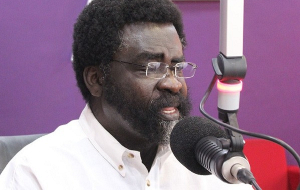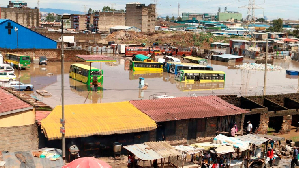General News of Tuesday, 16 April 2002
Source: Chronicle
Upper West, Upper East Top Poverty Table - Peter Harold
The World Bank country director, Mr. Peter Harold, has disclosed that the Upper West and Upper East regions are leading the poverty table with 90% of the people within the poverty net.
According to him, "Poor in this contest means they don't have enough to eat".
He also said that the two regions are poorer now than they were a decade ago.
"Almost 90% of the people in the Upper East Region are poor. All except 10% of the people in the Upper West Region are poor," he said.
Speaking on "Front Page," a current affairs programme on Joy FM in Accra, the country director added that the Northern Pegion and parts of the Central Region immediately follow the UE and UW on the poverty table.
In a sharp contrast, Mr. Harold noted that only 5% of the population in Accra are poor, adding that "there is not much poverty in Accra like it used to be 10 years ago."
He observed that there is the need for government to ensure equal and fair distribution of the national cake.
"If you have a bigger cake, you've got to distribute it well to keep everybody happy," he added.
The country director also reiterated that for the government to effectively reduce poverty, there was the need to generate more growth and make sure that growth is spread to all Ghanaians.
He said the current growth rate of 4.5% is not enough and would not do the trick of bridging the poverty gap.
"It will not close the gap. If we continue growing at 4%, in the next five years there are going to be more poor people in Ghana," he said.
He said there was need for the government to be aware of this because after four years they will have to go back and face the people.
On governance, the World Bank official said they, the development partners, are strongly committed to the new government's stance of zero tolerance for corruption and open government.
"We share the ideals very, very, clearly. Let us make it to really see action on these issues and see the office of accountability being set up. To see the codes of conduct for the public sector adopted."
Mr. Harold said it is also the desire of the development partners to see the public procurement law actually put before Parliament so that procurement procedures will become more open.
"So don't just talk, walk the talk and get these things in place," he added.
According to him, the issue of public finance management is another area which is dear to their heart as partners, adding that they are "collectively concerned and brutally frank about" public finance management.
Mr. Harold took a walk down memory lane and recounted what went wrong in the past years with respect to public finance management was that the controls on expenditure were abandoned .
This, he said, resulted in the numerous problems that the new government inherited upon the assumption of office.
Mr. Harold however observed that the new government has not still solved these problems.
Opinions









